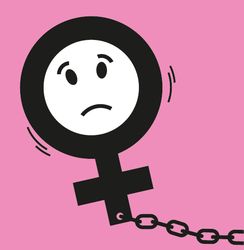Independent research organisation Trayas has recently (March 2002) published a study—State of Discrimination Report. At the state level (for 23 states), this study documents barriers that prevent women from entering the labour force. Female labour force participation rates are low in India, and they have declined over time. An increase is desirable. Even without that objective, discrimination is undesirable. The report catalogues roughly 50 Acts and 150 rules, with rules flowing from Acts. Broadly, these are under three heads—labour (such as Factories Act or Plantation Labour Act), Shops and Establishment Acts and state-level excise laws.
For labour, one needs to wait, since most labour-related Acts have now been subsumed under four codes. It is possible that gender discrimination will still creep in, once states announce rules under these new codes. I knew about restrictions on women working at night, or in jobs regarded as hazardous or arduous. There is a history behind such restrictions, even if these are dysfunctional now. Other countries, often perceived to be more advanced and progressive, also have similar provisions.
What stumped me are provisions on excise-related laws. I was aware such provisions existed, but was not aware of the severity. For instance, consider the Punjab Excise Act of 1914, made applicable to many states. Section 30 states, “No person who is licensed to sell any liquor or intoxicating drug for consumption on his premises shall during the hours in which such premises are kept open for business, employ or permit to be employed either with or without remuneration any man under the age of 25 years or any woman in any part of such premises in which such liquor or intoxicating drug is consumed by the public.” One can understand a drinking age, but notice that bit about “woman”. More than the text of the law itself, explanatory notes remind us of the 1914 vintage. “Section 30 is a social piece of legislation with the object to save the younger generation and the woman folk (sic) from becoming addict to the intoxicants and avert and avoid any conflict between sexes and chances of foreseen sexual offences.” The use of the word “foreseen” is presumably not a typo. One should add that countries perceived to be more advanced and progressive also have similar provisions when it comes to liquor, on moral grounds. I did not mention it earlier, but Trayas has a ranking of states, depending on how rigid or flexible they are, on employing women.
For excise and liquor, the most free are Goa, Himachal Pradesh, Kerala and Tamil Nadu and the most unfree are Chhattisgarh, Haryana, Odisha, Punjab, Uttarakhand and West Bengal. Some states need written permission from the excise commissioner/board before a woman can work in an establishment where country or foreign liquor is served and consumed, not to speak of prohibitions on a woman being allowed to sell such liquor. We may have our views on Article 47 of the Constitution (prohibition of intoxicating drinks), but that does not warrant a gender bias.
Before reading this report, I did not know that “Chhattisgarh and Uttar Pradesh require a licence applicant to file an affidavit to the effect that, ‘he shall not employ any salesman or representative who has criminal background’, or any person ‘who suffers from any infectious or contagious disease or is below 21 years of age’, or ‘a woman’.” This is true. I verified it from a 2005 case before the Chhattisgarh High Court (Rishi Dikshit vs the state of Chhattisgarh). There are related restrictions on women as performers at such premises (think of dance bars in Maharashtra). We have inherited statutes and mindsets (reflected in some court judgements). They do not gel with Article 14.
Bibek Debroy is the chairman of the Economic Advisory Council to the prime minister.


